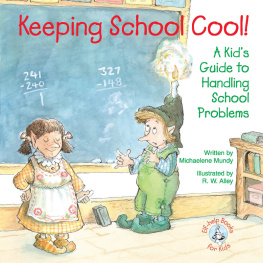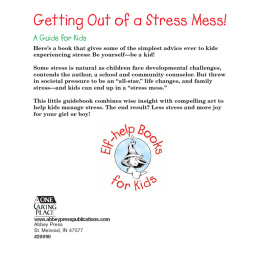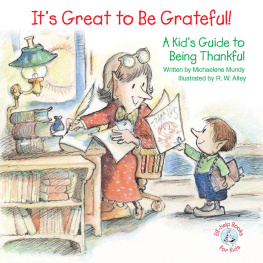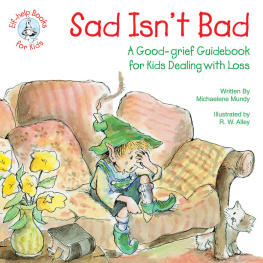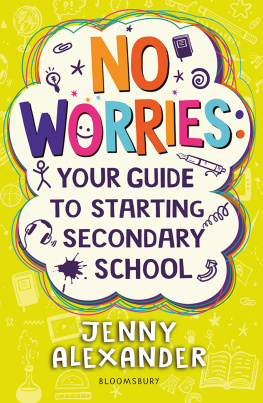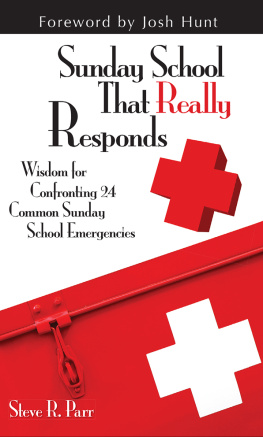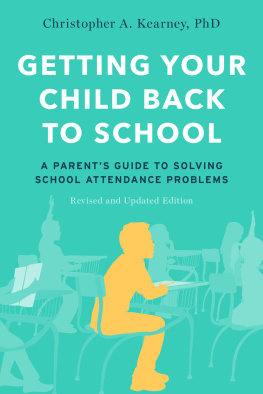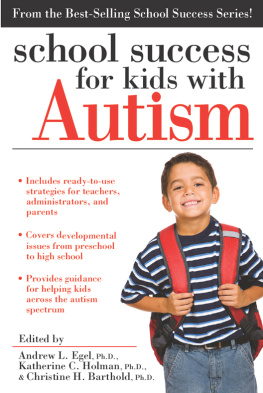Keeping School Cool!
A Kids Guide to Handling School Problems
Michaelene Mundy
Illustrated by R. W. Alley

Abbey Press
Many thanks to Emily and Andrew,
who were my consultants in recalling school problems
and the feelings associated with them.
As high school students, they were closer to those
elementary fears and concerns than I.
A Message to Parents, Teachers,
and Other Caring Adults
From the end of August until the first part of June, children spend many more hours at school than their waking hours at home. For seven or eight hours a day, they must fend for themselves, away from the protective arms and eyes of parents. They deal with people of all ageson the bus, in class, at lunch and recess. They learn many social skills through trial and error.
Adults must take care not to belittle a childs concerns about school. These problems may seem trivial compared to adult worries, but a childs problems can be just as gut-wrenching and nerve-wracking. When a child comes home from school, its important that someone show an interest in how the day went.
A good starting place is your childs backpack. You can unearth treasures to display with pride on the refrigerator and then tuck away in a memory box. That backpack also contains many conversation starterscorrected papers, test grades, updates and notes from the teacher.
Even though teachers and bus drivers try to be aware of whats going on, they are not omniscient. Cliques, conflicts, and bullying do happen. Try to get your child to talk about problems like this, and come up with a plan of action. If a child has been hurt or threatened with harm, of course, you need to alert school authorities.
We cannot always protect our children from daily hardships, however, and we shouldnt. A child doesnt learn responsibility, for example, if a parent rushes to school with homework inadvertently left on the kitchen table. Its up to adults to find a good balance between intervening and allowing a child to deal with his or her own difficulties.
I hope this book will help you to pinpoint any problems your child may be having, so that you can offer the perspective, reassurance, or extra help needed to keep school cool!
Michaelene Mundy

The First Day
T he first day of school is exciting! You may have new clothes to wear. You might have new thingslike a fresh box of crayons and a full bottle of glue that isnt all gunked up at the spout.
T he first day of school can be scary, too. You have a new teacher, a new classroom, and new books. You may know some classmates, but not others.
M ost of your classmates feel just as you doexcited and scared at the same time. As you get used to things in the next few days, it wont feel so scary anymore.

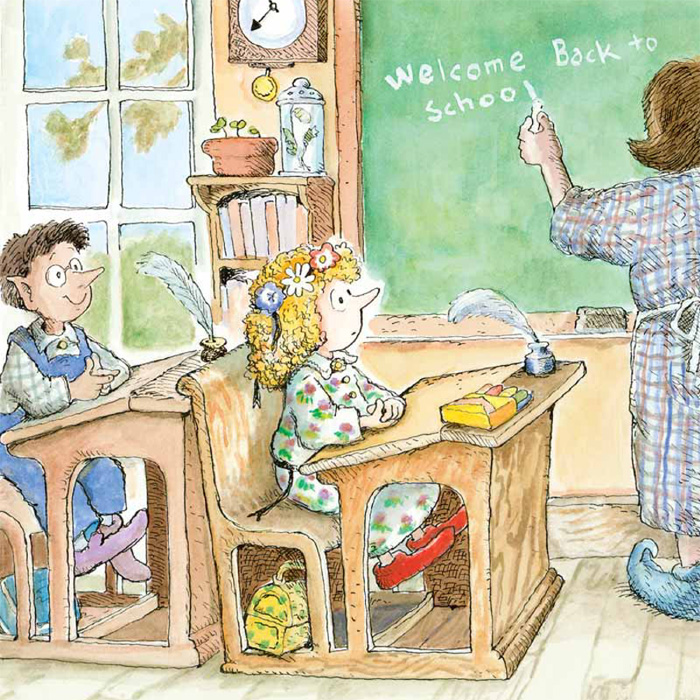


Learning Takes Time
W hen you flip through the pages of your new books, you may find some words or problems that look hard. Dont worry! Your teacher will explain all this later in the year. You will learn new things little by little.
I f youre having trouble learning something, keep trying. Ask your teacher for help after class, or take your book home to practice. Be sure to let your parents and teacher know if you still cant get it.
Y our teacher knows how to tell if you have what is called a learning problem. She can make sure that you get special help, so you dont get behind in your work.


So Much to Do
K ids have a lot to do! You go to school all day. Then you might have soccer practice, piano lessons, and lots of homework.
I f you feel worried about all you have to do, you may need to change the way you do some things. Try to start ahead of time to study for a test or to do a project. If you get time in school to do homework, make good use of that time.
B e sure to eat healthy food to keep your mind and body working well. When you cant eat supper till late because you have practice, ask Mom or Dad to bring you a sandwich and some juice.

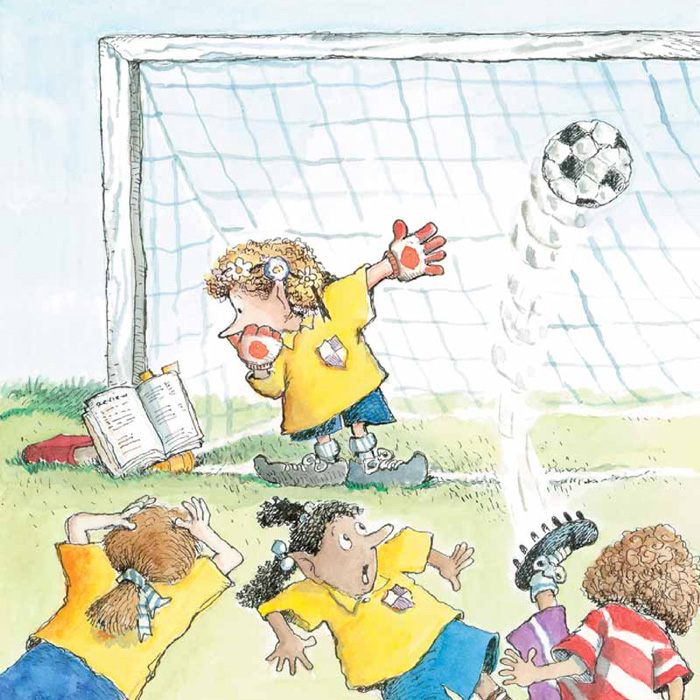
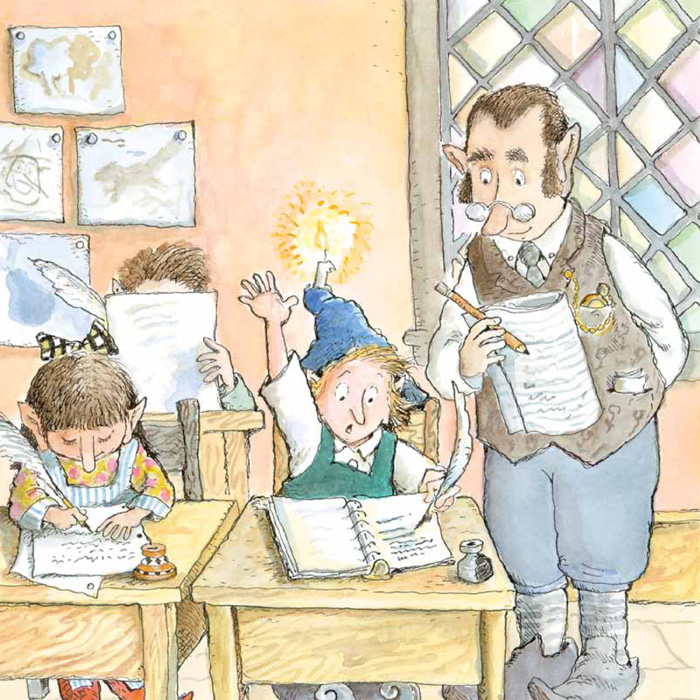

Tips on Teachers
I f you dont understand something in class, raise your hand and ask a question. There are no stupid questions. You may be asking the same thing another student was too shy to ask.
I f you dont know why something was marked wrong on a paper, ask your teacher to explain it.
S ometimes kids think their teacher doesnt like them. If youre having teacher trouble, talk with your parents about it. They can set up a time for all of you to sit down together with your teacher and work out the problem.


Homework Helps
S chool and homework go together like sports and practice. Homework helps you practice your school skills. It lets the teacher know what you understand and what you need to work on.
D ont worry if you make some mistakes on your homework. Mistakes are part of learning. When you go over your paper later, you can find out what you did wrong. Then you can get it right the next time!
I t helps to have a special place for homework. You need a desk or table to write on and spread out your things. You need a quiet place, away from the TV, video game, or loud music.
I t may help if a parent is near, in case you have a question. But, remember, it is your homework. It wont help you learn if someone else does the work.


